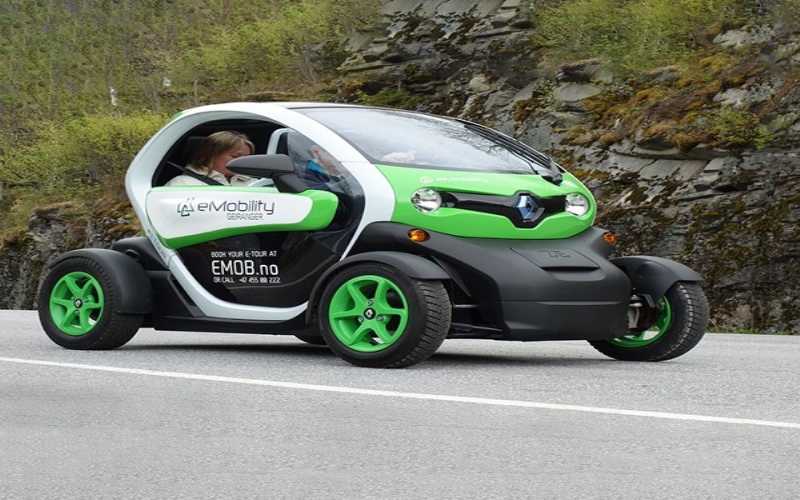As the power supply for electric vehicles, electric vehicle chargers provide electric vehicle owners with convenient charging services. For convenience store owners, they represent a potential business opportunity.
What are the benefits of installing an EV charger for convenience store owners?
Deploying commercial EV chargers allows commercial establishments to attract customers, increase traffic, improve customer satisfaction, and gain potential business opportunities by extending customer dwell time.
Increased customer traffic
Installing electric vehicle charging stations at convenience stores can attract a new customer base-electric vehicle owners. When these individuals charge their vehicles, they may spend time in the store, increasing customer traffic. This provides an opportunity for additional sales, whether it’s snacks, beverages, or other convenience store products.
Extended customer dwell time
The time it takes to charge an electric vehicle allows convenience store owners to enhance the customer experience. EV owners are more likely to spend time shopping in the store while charging, leading to the convenience industry potentially getting more spending from customers.
Increased Revenue
By offering charging services, convenience store owners can utilize EVs to generate more revenue. For example, use EV chargers with advertising screens to earn advertising dollars.
What type of EV charger is best for convenience store owners?
Convenience store owners should invest in commercial EV chargers, specifically DC fast chargers and Level 2 commercial EV chargers, to meet the rapid needs of EV owners.
Level 2 commercial EV chargers are suitable for convenience store owners because they offer relatively fast charging speeds for longer customer stays. These chargers are ideal for parking lots, shopping centers, etc., and can entice customers to purchase during the charging process, increasing convenience store traffic and sales. Level 2 commercial chargers are also easier to integrate into a convenience store’s electrical infrastructure due to their relatively low power requirements.
However, the convenience store is geographically located at a highway service station or needs to accommodate long-distance travelers. In that case, it may be more appropriate to consider installing a DC EV charger. DC chargers offer higher charging speeds for drivers who need to charge quickly, making them more likely to choose that convenience store as a charging station. However, managers need to consider the higher investment and electrical infrastructure requirements and the impact on convenience store business of customer stopover behavior during fast charging.
Convenience store owners: how to choose a reliable EV charger manufacturer
Convenience store owners can ensure the success of their EV charging business by choosing a reliable EV charger manufacturer. I’ve listed five key factors convenience store owners should consider.
Product quality and certification
To ensure the safety of their EV chargers, convenience store owners should choose an EV charger wholesaler that meets international or local standards and is certified, for example, CE certification in the European region, UL certification in the US, etc. These certifications prove that independent organizations have tested the products and meet relevant safety and performance standards. Operators can request certification documents from manufacturers to verify the compliance of their products. Only certified products can ensure no safety hazards during use and the long-term stable operation of EV charging equipment.
Technical support and service
Choosing an EV charger manufacturer with technical support and after-sales service is crucial for convenience store owners. EV chargers may have various problems during use, and timely and effective technical support is critical to quickly return the equipment to regular operation. Owners should be aware of the specialized support options offered by the manufacturer, including remote support, phone support, online support, and more. In addition, understanding the generator’s maintenance plan and service contract ensures that timely support is available when the device requires maintenance, minimizing downtime.
Compatibility
Convenience store owners should choose an EV charger that is compatible with different models and brands of EVs.EV charger manufacturers can achieve this by ensuring that the charger meets international standards and utilizes a common charging port. Meanwhile, some manufacturers can update the compatibility of their devices promptly, such as updating ocpp 2.0.1. In this way, owners can cater to the changing needs of a wide range of EV users, increasing customer satisfaction at convenience stores and attracting more EV users to choose to charge at their stores.
Smart Features
As technology continues to evolve, modern EV chargers often have smart features that enhance the user experience and simplify the management of charging services. Owners should choose a manufacturer that offers intelligent features such as payment integration, remote monitoring, and data analytics. Payment integration makes it easy for users to make payments while charging and improves the convenience of the service. Remote monitoring, on the other hand, enables owners to monitor the operation of charging equipment anytime, anywhere, and identify and solve problems promptly.
Price and cost-effectiveness
When selecting an EV charger manufacturer, owners need to thoroughly consider the overall cost of the equipment, including purchase costs, installation costs, and operation and maintenance costs. While price is an important consideration, homeowners should not focus solely on the purchase cost but should also consider the long-term cost-effectiveness of the equipment. Some EV wholesalers may offer lower purchase costs, but operation and maintenance costs may be higher, so a thorough cost analysis is needed before making a decision.
Conclusion
Owners can profit from their EV charging business by installing commercial EV chargers in convenience stores. The deployment of commercial EV chargers can attract EV owners, increase traffic, extend customer dwell time, and create additional sales opportunities by providing charging services and an enjoyable shopping experience. By choosing a reliable manufacturer, owners can ensure the safety and reliability of their equipment and maximize the opportunities for profitability and growth for convenience stores with commercial EV chargers.

